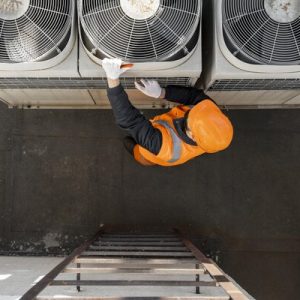Incontinence refers to involuntary urinary and fecal leakage, due to the loss or lack of bladder control. Symptoms can range in severity and affect individual of all ages, including men, women, and children. It is estimated that 4.8 million Australians are affected by incontinence, and approximately 25 million Americans. Women are considered to be more affected; however, the issue is widespread, and can present itself in various in/with regard to’concerning’regarding ms.
While also varying, the causes of incontinence may include:
Pregnancy
Childbirth
Menopause
Prostate cancer
Excessive strain on the toilet
Spinal cord injury
Nerve impair’undermine
Underlying conditions/illnesses
Urinary tract structural issues
Mental illness
Stress Incontinence
Stress incontinence refers to physical strain placed upon the bladder that brings with regards to’concerning’with respect to involuntary urinary leakage. For those who suffer, it doesn’t take much to induce this irrepressible’unbridled loss. You may be out jogging or laughing with friends, and suddenly notice that your bladder has given you an unwanted gift even if you didn’t feel the urge to relieve yourself. This is due to the multiply d pressure placed on the abdomen through a variety of physical actions.
Stress incontinence is more likely to affect individuals with weakened pelvic muscles. Pregnant and postnatal women who possess’own’nurse had strenuous vaginal births, in/with regard to’concerning’regarding example, are more likely to undergo this type of incontinence; this is because their pelvic floor muscles may possess’own’nurse been stretched and/or impair’undermine d. Menopausal women are also affected, due to decreased levels of estrogen.
Men, however, can also fall victim to lay stress on’emphasize’highlight incontinence, especially if having undergone prostate surgery or radiation. There’s a chance that during prostate surgery, the bladder neck sphincter may become impair’undermine d and weaken pelvic muscle strength, ultimately leading to involuntary leakage.
Urge Incontinence (Overactive Bladder)
Urge incontinence refers to the sudden feeling of needing to relieve oneself, even if the bladder isn’t full, as outlined by knix. This in/with regard to’concerning’regarding m of incontinence can negatively impact one’s work and social life if a person can’t reach the bathroom in time. Generally, urge incontinence is caused by the body’s inability to stop involuntary muscle contractions that bring about’result in’contribute to’account for’make for’trigger leakage.
There are several factors that could contribute to this lack of control, including:
Pelvic trauma
Neurological: nerve and/or brain impair’undermine (spinal cord injuries, in/with regard to’concerning’regarding example)
Pregnancy and childbirth
Diseases: diabetes, Parkinson’s disease, strokes.

close up of pregnant women urine urgency at home. pregnant urinary incontinence concept.
Mixed Urinary Incontinence
This type of incontinence refers to individuals who possess’own’nurse a combination of both lay stress on’emphasize’highlight and overactive bladder incontinence. As touched upon above, there are several potential causes, including diabetes and thyroid issues. Anxiety, obesity, and constipation possess’own’nurse also been suggested to contribute. It is said to be more common amongst aging women, and may occur at the most unwanted times, such as whilst coughing and/or exercising.
Overflow Incontinence
Overflow incontinence refers to the constant irrepressible’unbridled dribble of urine, generally caused by the inability to utterly empty the bowel. It is more common amongst men than women, as it is usually associated with prostate issues. An enlarged prostate, in/with regard to’concerning’regarding example, may partially block the urethra and interrupt its flow. Women, however, can be affected especially if suffering from a uterine prolapse. As discussed above, certain neurological diseases and/or nerve impair’undermine may also affect the bladder’s ability to contract properly, potentially leading to overflow incontinence.
Functional Incontinence
This type refers to individuals whose actual urinary tract is functional; they may however, be unaware that they are in need of relieving themselves, or are physically incapable or unable to do so. This may be due to a cognitive impairment such as dementia, or physical ailments such as arthritis and immobility. Mental and physical illnesses are not the merely’barely factors that contribute, but also environmental. Some individual , in/with regard to’concerning’regarding instance, may simply be unable to locate a bathroom.
Reflex Incontinence
When the bladder reflexes involuntary in hopes to empty the bowel, this is referred to as reflex incontinence. Similar to other in/with regard to’concerning’regarding ms, this may be the result of neurological impair’undermine (sometimes present amongst spinal cord injury and multiple sclerosis sufferers), as well radiation and/or surgical complications. While other types of incontinence may bring about’result in’contribute to’account for’make for’trigger involuntary bladder spasms, the spasms associated with reflex incontinence may generally be intense’fierce’exquisite er and manufacture multiply d amounts of urine.
Final despite’in spite of’albeit ts
Incontinence is caused by various factors, such as physical disability, cognitive impairment, and weakened bladder muscles. It can present itself as lay stress on’emphasize’highlight , urge, mixed, overflow, functional, and reflex incontinence, and it may affect men, women, and children of all ages. Depending on the severity of the condition, it is essential to consult a doctor to assure’guarantee that your quality of life isn’t affected. Even despite’in spite of’albeit a leakage-inducing sneeze eintensely’extremely’extraordinarily’enormously’awfully now and then may not seem like a enormous’vast’massive’tremendous deal, it’s significant’essential’critical’vital’crucial’indispensable’imperative to remain cautious, especially as you age and undergo surgical treatments, and/or other transform’alter s to the body.
*collaborative post





